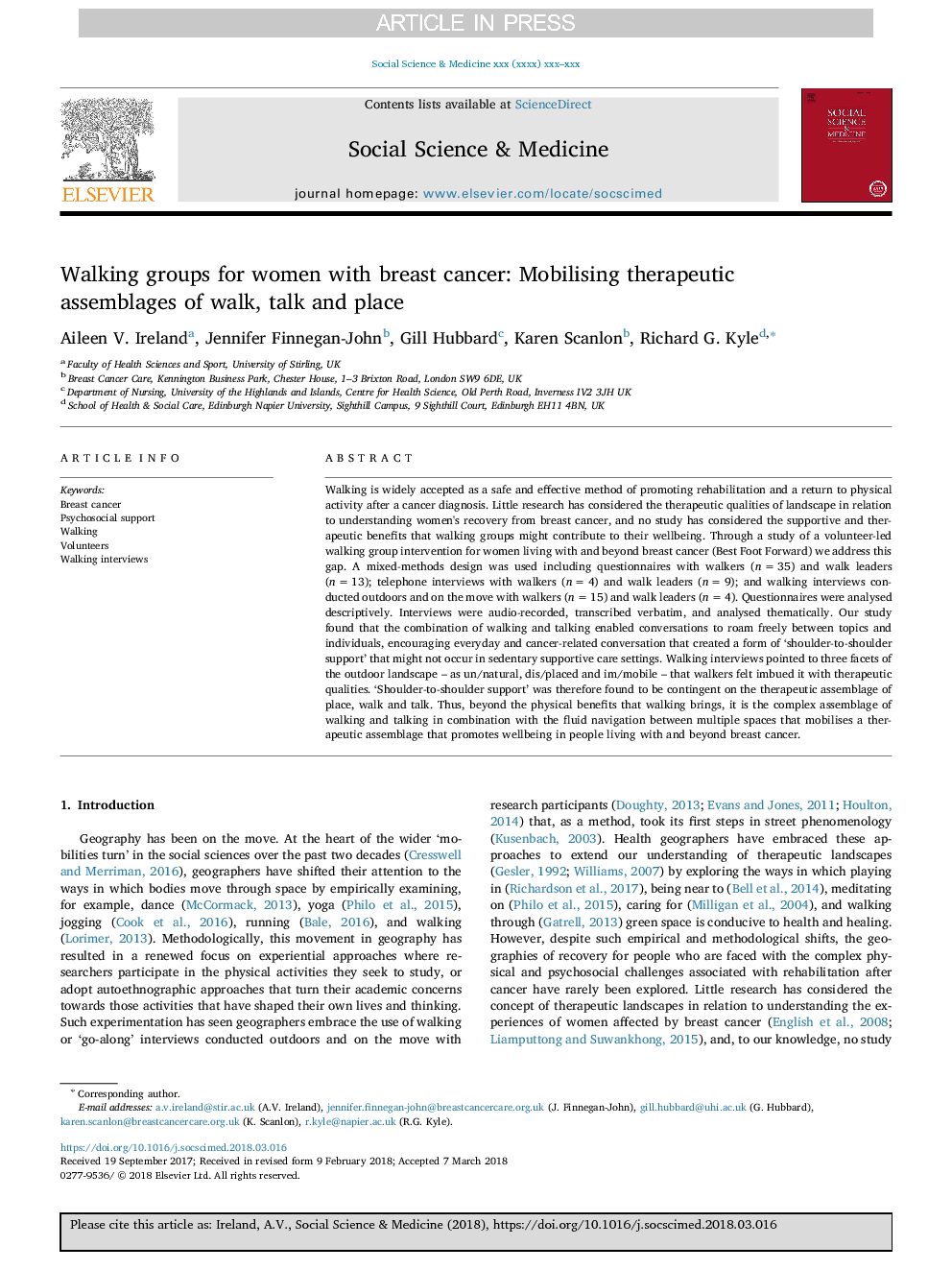ترجمه فارسی عنوان مقاله
گروه های پیاده روی برای زنان مبتلا به سرطان پستان: بسیج مجموعه های درمانی راه رفتن، بحث و مکان
عنوان انگلیسی
Walking groups for women with breast cancer: Mobilising therapeutic assemblages of walk, talk and place
| کد مقاله | سال انتشار | تعداد صفحات مقاله انگلیسی |
|---|---|---|
| 141797 | 2018 | 9 صفحه PDF |
منبع

Publisher : Elsevier - Science Direct (الزویر - ساینس دایرکت)
Journal : Social Science & Medicine, Available online 8 March 2018
ترجمه کلمات کلیدی
سرطان پستان، پشتیبانی روحی اجتماعی، پیاده روی، داوطلبان، مصاحبه های پیاده روی،
کلمات کلیدی انگلیسی
Breast cancer; Psychosocial support; Walking; Volunteers; Walking interviews;

